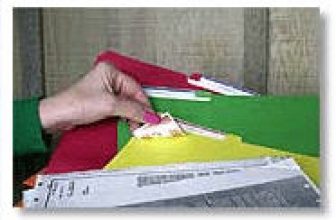
France Auchan uses RFID technology to track cargo boxes
[ad_1]
French supermarket giant Auchan uses EPC Gen 2 tags and readers to track 1.8 million reusable plastic boxes. The tracking process involves from growers to distribution centers (DC) to retailers, including the cleaning process. The RFID solution has been developed and implemented for two years. The purpose is to supervise the leased cargo frame and use it as a basis to determine whether the cleaning situation meets EU requirements. The system includes tags, readers and related data software, which are provided by Orange Business Services and France Telecom. The passive ultra-high frequency (UHF) RFID tags and readers of the EPC Gen 2 standard used in the system are manufactured by IER.
Auchan Group has approximately 1,317 stores and is the world’s twelfth largest food retailer. Since 2007, the company has phased out paper and wooden packaging boxes and pallets and replaced them with reusable plastic containers. Fran?ois Laveissière, Head of IT Innovation Department of Auchan, said: The installation of the system helps reduce storage space (plastic containers occupies smaller volume than wooden pallets), better protect fruits and vegetables, and provide more attractive display methods , Sell the goods directly on the floor to facilitate customers to buy.
Auchan leases reusable plastic cargo boxes from logistics provider Cogit LGC. These containers often travel to and from many stores and distribution centers in France and Spain. It is inevitable to forget or be stolen, and it is difficult to trace the time of occurrence. Moreover, EU regulations require that reusable containers must be washed and disinfected before use. If there is no automatic tracking system, it is difficult to guarantee the above points.
Laveissière said: In order to solve these problems, Auchan decided to use RFID tags to track cargo boxes and cooperated with Orange Commercial Services to develop RFID solutions. After the system is implemented, the location of the container can be located without scanning the bar code, which greatly improves work efficiency and improves the boring and time-consuming working methods of employees.
Before the RFID system is officially put into use, Auchan and Orange Commercial Services will jointly test the best reading position of the tag. The best result of the test is: To ensure 100% reading accuracy, a Cogit UHF Gen 2 passive label with adhesive is attached to the front and back sides of the container. Currently, a read rate of about 98% can be achieved.
Various regions of France and Spain. When the small freight truck or forklift carrying the cargo frame passes through the passage at a speed of 12 kilometers (7.5 miles) per hour, the built-in reader can read more than 200 tags at a time. When loading and unloading, the tags are read. At the end of this year, the company plans to provide RFID handheld readers to 130 stores. By 2012, fruit and vegetable growers will use the same type of handheld readers. The handheld device can read the ID code and forward it to the company’s back-end server via Wi-Fi or GPRS connection.
Each tag has a unique ID number associated with the serial number of the box, and these codes are stored on the cloud-based server software of Orange Business Services. The used goods boxes in the supermarket will be transported to the growers for reuse. The company reported that the handheld device sends information about the location of the cargo frame to supermarkets and growers to achieve accurate positioning. When the container enters and exits the distribution center, the label is read twice; in the supermarket, a handheld device is used to read the label and store the information that the product arrives at the supermarket. Cogit’s washing department also installs channel readers. After the container is used up, it is transported to the washing department for cleaning. At this time, the label will also be read, and the relevant data in the server will be updated at the same time, indicating that the container has been cleaned and disinfected.
In addition, the data recorded in the software helps retailers analyze the transportation process of products in the supply chain and solve problems early.
Although the solution has not yet been fully put into use, effective data has provided managers with a lot of valuable information, such as ordering products more effectively to prevent slow sales or out of stock.
Laveissière said: In the future, the company plans to apply RFID technology to food supply chain tracking, so that food can be effectively monitored.
[ad_2]




